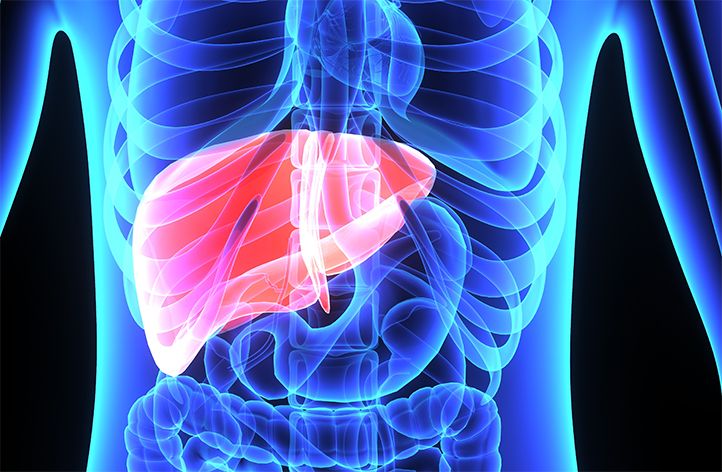FDA Accepts NDA Resubmission of Rivoceranib/Camrelizumab in uHCC
The resubmission included an analysis of the phase 3 CARES-310 study, which reported favorable overall survival with the combination therapy in uHCC.
The resubmission included an analysis of the phase 3 CARES-310 study, which reported favorable overall survival with the combination therapy in uHCC.

The FDA has accepted the new drug application (NDA) resubmission of rivoceranib (YN968D1) in combination with camrelizumab (SHR-1210) as a systemic frontline treatment for patients with unresectable or metastatic hepatocellular carcinoma (uHHC), according to a news release from the drug’s developer, Elevar Therapeutics.1
The FDA assigned a Prescription Drug User Free Act (PDUFA) target action date of March 20, 2025, for rivoceranib plus camrelizumab for uHCC.
Supporting data for the resubmission follows the presentation of the final survival analysis of the phase 3 CARES-310 study (NCT03764293) at the 2024 American Society of Clinical Oncology (ASCO) Annual Meeting. Findings from the study reveal a median overall survival (OS) benefit with the combination therapy vs standard of care (SOC) tyrosine kinase inhibitor (TKI) inhibitor, sorafenib (Nexavar) at 23.8 months (95% CI, 20.6-27.2) vs 15.2 months (95% CI, 13.2-18.5), respectively (HR, 0.64; 95% CI, 0.52-0.79; P < .0001).2 Additionally, median progression-free survival (PFS) was 5.6 months (95% CI, 5.5-7.4) with the combination therapy vs 3.7 months (95% CI, 3.1-3.7) with SOC (HR, 0.54; 95% CI, 0.44-0.67; P < .0001).
“We believe rivoceranib plus camrelizumab has the potential to change the clinical practice in the first-line setting for patients with advanced liver cancer. The results of the pivotal CARES-310 trial demonstrated significant improvements in [OS], with a manageable safety profile compared with currently approved uHCC therapies. Elevar is committed to working with the FDA to bring this combination to market for patients and healthcare providers,” Chris Galloway, MD, senior vice president of Clinical and Medical Affairs at Elevar Therapeutics, said in the news release.1
The open-label phase 3 trial randomly assigned 543 patients 1:1 with locally advanced or metastatic uHCC not having received previous systemic therapy to either 200 mg intravenous camrelizumab once every 2 weeks plus 250 mg oral rivoceranib once daily (n = 272) or 400 mg oral sorafenib twice daily (n = 271). The study began on June 10, 2019, and the protocol-specified final analysis was performed on June 14, 2023, after 351 (65%) deaths.
The coprimary end points of the study were OS and PFS assessed by a blinded independent review committee (BIRC).3 Secondary end points included objective response rate (ORR), disease control rate (DCR), and duration of response (DOR).
The ORR between the investigational and SOC arms was 26.8% (95% CI, 21.7%-32.5%) and 5.9% (95% CI, 3.4%-9.4%), respectively. Furthermore, the median DOR between respective arms were 17.5 months (95% CI, 9.3 – not reached [NR]) and 9.2 months (95% CI, 5.3-NR).
OS events occurred in 58.5% (n = 159) of the combination arm and 70.8% (n = 192) of the SOC arm. In respective arms, PFS events occurred in 73.2% (n = 199) and 77.1% (n = 209) of patients. Furthermore, the 24-month OS rate was 49.0% with rivoceranib plus camrelizumab vs 36.2% with sorafenib and 37.7% vs 24.8%, respectively, at 36 months.
OS benefits were similar across patient subgroups, and PFS, ORR, and DOR benefits persisted through prolonged follow-up. Safety data was consistent with interim OS analysis, with no new safety signals observed.
Key inclusion criteria for the study included histopathologically or cytologically confirmed advanced HCC, Barcelona Clinic Liver Cancer (BCLC) stage B or C, an ECOG performance status of 0 or 1, and a life expectancy of at least 12 weeks, among other criteria. Key exclusion criteria included the presence of hepatocholangiocarcinoma, sarcomatoid HCC, mixed cell carcinoma, and lamellar cell carcinoma or other active malignant tumors expect HCC within 5 years, moderate-to-severe ascites, gastrointestinal hemorrhage within 6 months prior to start of study treatment, or known genetic or acquired hemorrhage or thrombotic tendency, among other criteria.
References
- Elevar Therapeutics announces FDA acceptance of new drug application resubmission for rivoceranib in combination with camrelizumab as a first-line systemic treatment for unresectable hepatocellular carcinoma. News release. Elevar Therapeutics. October 21, 2024. Accessed October 23, 2024. https://tinyurl.com/ytzrfuc9
- Vogel A, Chan SL, Ren Z, et al. Camrelizumab plus rivoceranib vs sorafenib as first-line therapy for unresectable hepatocellular carcinoma (uHCC): final overall survival analysis of the phase 3 CARES-310 study. J Clin Oncol. 2024;42(suppl 16). doi:10.1200/JCO.2024.42.16_suppl.4110
- A study to evaluate SHR-1210 in combination with apatinib as first-line therapy in patients with advanced HCC. ClinicalTrials.gov. Updated February 6, 2024. Accessed October 23, 2024. https://tinyurl.com/453zf9s5